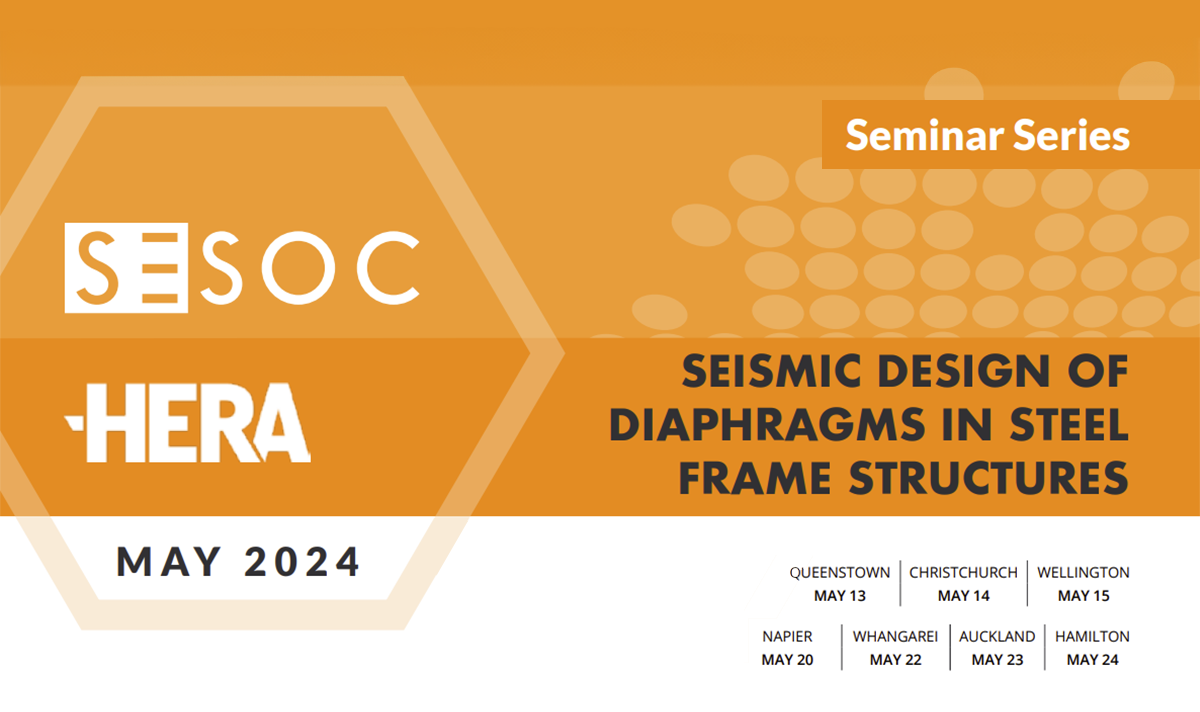Join us for an upcoming HERA and SESOC seminar on diaphragm design in steel frame structures.
Diaphragms are essential for providing stability and integrity to various types of buildings and structures, and distributing lateral forces like wind and seismic loads across the structure. Properly designing diaphragms is crucial for achieving desired seismic performance.
This seminar will cover fundamental aspects of diaphragm design, including an overview of design philosophy, calculation methods for in-plane demands, modeling and analysis techniques, strength and stability considerations, load path to lateral load resisting systems, diaphragm detailing requirements, and practical design examples.
Participants will gain a comprehensive understanding of diaphragm in-plane design in steel frame structures, with applicable principles for concrete or timber structures as well. Suitable for structural engineers at all experience levels. Don’t miss this opportunity to enhance your knowledge and skills in structural engineering!
HERA’s part to play in the seismic design of diaphragm kōrero (conversation)…
Part of our rangahau (research) at HERA has been focused on equipping engineers with the essential knowledge to facilitate the analysis and design of diaphragms by presenting a detailed diaphragm design process specifically tailored for steel frame structures.
There are two key reasons for this:
- Diaphragm design is not straight forward and instead is very complex due to the varying shapes and specifications of individual diaphragms; and
- There is no existing guidelines available to help engineers navigate this space meaningfully.
It is why, HERA was very excited to release our HERA Report R4-161: Diaphragm design guidelines in steel framed structures earlier this year. We know that floor diaphragms play a crucial role in maintaining structural integrity by resisting gravity loads and transferring them to the structure’s force-resisting system. Additionally, they offer lateral support to vertical elements and withstand horizontal forces like wind and seismic actions, redirecting them to the vertical lateral force-resisting system. This guide gives users a comprehensive understanding of in-plan diaphragm design principles applicable to steel structures to help address these complexities.
In this joint seminar with SESOC, our General Manager Structural Systems Kaveh Andisheh hopes to share our expertise in this space and discuss these ideas more deeply.
So what are you waiting for? Secure your spot today!
The seminar will be presented in the following rohe (area/regions):
· Queenstown: May 13;
· Christchurch: May 14;
· Wellington: May 15;
· Napier: May 20;
· Whangarei: May 22;
· Auckland: May 23; and
· Hamilton: May 24.


